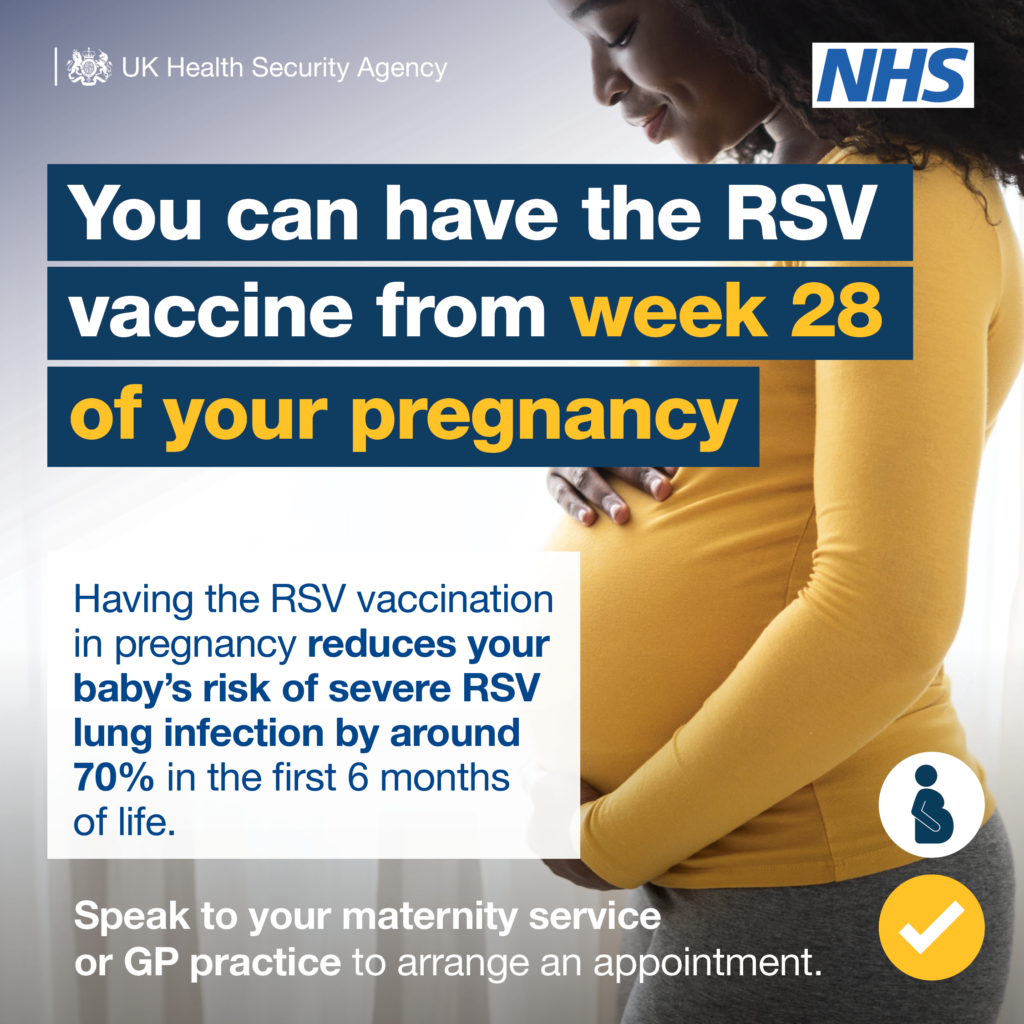RSV Vaccination in Pregnancy

RSV is a major cause of respiratory illness, particularly dangerous for infants and the elderly.
The virus can lead to pneumonia and infant bronchiolitis, requiring hospitalisation and
intensive care in severe cases.
This new vaccine offers huge opportunities to prevent severe illness in those most
vulnerable to RSV, helping to protect lives and ease winter pressures for the NHS.
We strongly encourage women who are 28 or more weeks pregnant to speak to their
maternity service or GP surgery to ensure their baby is protected
What is RSV?
Respiratory syncytial virus (RSV) is a major respiratory virus that is most common over the
winter period, typically October to February. While the symptoms are mild for many, RSV
accounts for around 30,000 hospitalisations of children under 5 in the UK annually, and for
20 to 30 infant deaths.
RSV can also be severe in older adults, causing pneumonia and flare-ups of existing lung
disease and other long-term conditions. It causes around 9,000 hospitalisations in those
aged over 75 in the UK each year.
Who is at risk?
RSV can be especially dangerous for infants and the elderly.
Severe RSV is most common in infants under 1 year old. Babies are particularly vulnerable
to RSV lung infections as they have small airways and have limited immunity against the
virus. RSV infection in infants can cause a condition called bronchiolitis which is
inflammation and blockage of the small air tubes in the lung.
Infants with severe bronchiolitis may need intensive care and the infection can be fatal.
The symptoms of RSV
RSV may cause a cough or a cold, wheezing, shortness of breath, tiredness and fever. Most
cases are not serious and clear up within 2 to 3 weeks.
RSV can also cause bronchiolitis in infants, which can make it difficult to breathe and feed.
RSV bronchiolitis symptoms may include difficult, fast or noisy breathing and being unsettled
or difficult to comfort.
RSV is a major cause of respiratory illness, particularly dangerous for infants and the elderly.
The virus can lead to pneumonia and infant bronchiolitis, requiring hospitalisation and
intensive care in severe cases.
This new vaccine offers huge opportunities to prevent severe illness in those most
vulnerable to RSV, helping to protect lives and ease winter pressures for the NHS.
- You should get your free RSV vaccine when you reach 28 weeks of pregnancy.
- You can use the link sent to your phone to book an appointment directly in practice or please contact reception to find an appointment that suits.
